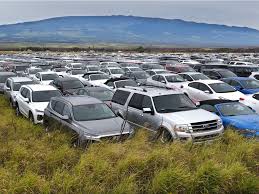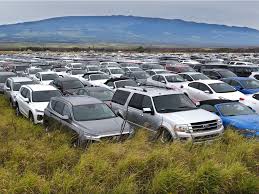
According to a report from the consultancy firm Earnst&Young, there can be growth in online car sales after the end of the novel coronavirus pandemic because people will be more concerned about health and hygiene and getting infected which could make them opt to choose personal vehicles as well as contactless modes of purchasing.
EY said that with the possibility of a turnaround in the trend of declining car sale post the Covid-19 pandemic, it is also important for automotive retailer to become virtual, lean and flexible in order to meet the sudden and accelerated change in consumer behaviour.
"Post the COVID-19 crisis, there is no denying that customers would lean further towards online and contactless modes of purchasing. Vehicles may very well fall in the same category too. While Indians are already more inclined towards researching online while buying cars, online sales are rare due to limited awareness, options and flexibility," the report said.
The EY report cited a recent study conducted in China which confirmed the fear among consumers about getting infected as well as a concern for lack of hygiene, which will shift the preference of consumers to personal mobility.
"One of the many fallouts of the COVID-19 crisis is likely to be people's proclivity to own and travel in a personal vehicle rather than use shared mobility or public transport," the report said. "This is likely to reverse the trend of declining car sales. Consistent with this consumer sentiment, combined with better online experiences, we anticipate an uptick in online car sales," it added.
“In a post COVID-19 world, we do expect continued adherence to social distancing norms. The path to purchase will continue to be influenced by digital enablers with some customer segments preferring a virtual path from awareness to closure,” said EY India Partner and Automotive Sector Leader Vinay Raghunath.
"A contactless purchase journey could be a win-win situation for customers, OEMs and dealers. Digital heavy processes offering flexibility in consumer connect supported by lean dealer operations is bound to become the new normal in the near future. Every player in the auto industry must invest ahead of the curve to keep pace with changing consumer dynamics," he also said.
That however also raised questions about the preparedness of the original equipment manufacturers (OEMs) and dealerships in adapting to this sudden and large change in consumer preferences. "Automotive retail needs to become virtual, lean and flexible, while the existing sales channels need to become more efficient to accommodate these changes...Now is the perfect time to have our contactless Invisible Salesman 'Anytime, Anywhere'm" the report said.
"However, despite the increased need for digitalization, the role of dealerships will not get diluted as some customers would still visit them for test drives or final purchase," the report said.
Dealerships will continue to connect OEMs with customers. According to EY, critical to the success of tapping into select consumer segments is the creation of and maintenance of an integrated "phygital" platform as well as a sale force that is digitally-enabled and agile.
(Source:www.moneycontrol.com)
EY said that with the possibility of a turnaround in the trend of declining car sale post the Covid-19 pandemic, it is also important for automotive retailer to become virtual, lean and flexible in order to meet the sudden and accelerated change in consumer behaviour.
"Post the COVID-19 crisis, there is no denying that customers would lean further towards online and contactless modes of purchasing. Vehicles may very well fall in the same category too. While Indians are already more inclined towards researching online while buying cars, online sales are rare due to limited awareness, options and flexibility," the report said.
The EY report cited a recent study conducted in China which confirmed the fear among consumers about getting infected as well as a concern for lack of hygiene, which will shift the preference of consumers to personal mobility.
"One of the many fallouts of the COVID-19 crisis is likely to be people's proclivity to own and travel in a personal vehicle rather than use shared mobility or public transport," the report said. "This is likely to reverse the trend of declining car sales. Consistent with this consumer sentiment, combined with better online experiences, we anticipate an uptick in online car sales," it added.
“In a post COVID-19 world, we do expect continued adherence to social distancing norms. The path to purchase will continue to be influenced by digital enablers with some customer segments preferring a virtual path from awareness to closure,” said EY India Partner and Automotive Sector Leader Vinay Raghunath.
"A contactless purchase journey could be a win-win situation for customers, OEMs and dealers. Digital heavy processes offering flexibility in consumer connect supported by lean dealer operations is bound to become the new normal in the near future. Every player in the auto industry must invest ahead of the curve to keep pace with changing consumer dynamics," he also said.
That however also raised questions about the preparedness of the original equipment manufacturers (OEMs) and dealerships in adapting to this sudden and large change in consumer preferences. "Automotive retail needs to become virtual, lean and flexible, while the existing sales channels need to become more efficient to accommodate these changes...Now is the perfect time to have our contactless Invisible Salesman 'Anytime, Anywhere'm" the report said.
"However, despite the increased need for digitalization, the role of dealerships will not get diluted as some customers would still visit them for test drives or final purchase," the report said.
Dealerships will continue to connect OEMs with customers. According to EY, critical to the success of tapping into select consumer segments is the creation of and maintenance of an integrated "phygital" platform as well as a sale force that is digitally-enabled and agile.
(Source:www.moneycontrol.com)





